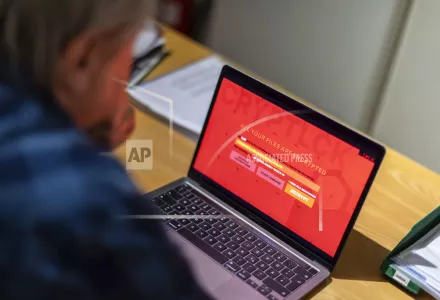Camille Stewart Gloster, Esq. the Deputy National Cyber Director for Technology & Ecosystem for The White House. In her role, Camille leads technology, supply chain, data security, and cyber workforce and education efforts for the Office of the National Cyber Director. Camille is a cyber, technology, and national security strategist and policy leader whose career has spanned the private, public, and non-profit sectors. She joined ONCD from Google, where she most recently served as Global Head of Product Security Strategy, and before that as Head of Security Policy and Election Integrity for Google Play and Android.
Prior to working at Google, Camille led cyber diplomacy, technology policy, privacy, and technical policy areas like encryption and PNT as the Senior Policy Advisor for Cyber, Infrastructure & Resilience at the U.S. Department of Homeland Security. During her time at DHS, Camille led campaigns, international engagements, and policy development that bolstered national and international cyber resilience. Those policies include Presidential Policy Directive 41 (PPD – 41) on federal cyber incident coordination, supporting Privacy Shield negotiations, and the 2016 Cybersecurity National Action Plan (CNAP) which outlined 75 tasks to enhance cybersecurity awareness and protections, protect privacy, maintain public safety as well as economic and national security. Camille has also held leadership roles focused on cyber and technology on Capitol Hill, at Deloitte, and Cyveillance, an open-source threat intelligence company.
Throughout her career, Camille has held cybersecurity fellowships at the Harvard Belfer Center, New America, Atlantic Council, and the Foundation for Defense of Democracies. Camille also served on the American Bar Association’s Standing Committee on Law and National Security during the 2021-2022 Bar Year and the Criminal Divisions Cybersecurity Committee during the 2020-2021 Bar Year.
Camille has contributed to advancing the field through technical research and writing, including a groundbreaking paper, and subsequent training for federal judges, on the exfiltration of national security-related technology and intellectual property through the courts. Most recently, she authored a paper on the need for and principles to support designing user-centric security programs.
Camille is passionate about expanding the cyber, technology, and national security workforces and co-founded the #ShareTheMicInCyber movement and the NextGen NatSec initiative to support investment in a highly skilled and diverse workforce. Both efforts serve to highlight the need for increased diversity in the cyber and national security fields respectively. Camille is also the co-founder of the Silicon Valley Chapter of Women in Cybersecurity (WiCyS).
Camille’s professional achievements have earned her recognition from a multitude of entities throughout her career including her being selected as a 2021 SANS Difference Maker Honoree, 2021 Root100 Honoree, 2021 Microsoft Security Changemaker of the Year, and a 2021 CyberScoop50 Cyber Industry Leadership Honoree.
Camille holds a B.S. from Miami University, a J.D. from American University Washington College of Law, and a CISO certificate from Carnegie Mellon University. Camille is CISSP and PMP certified.

